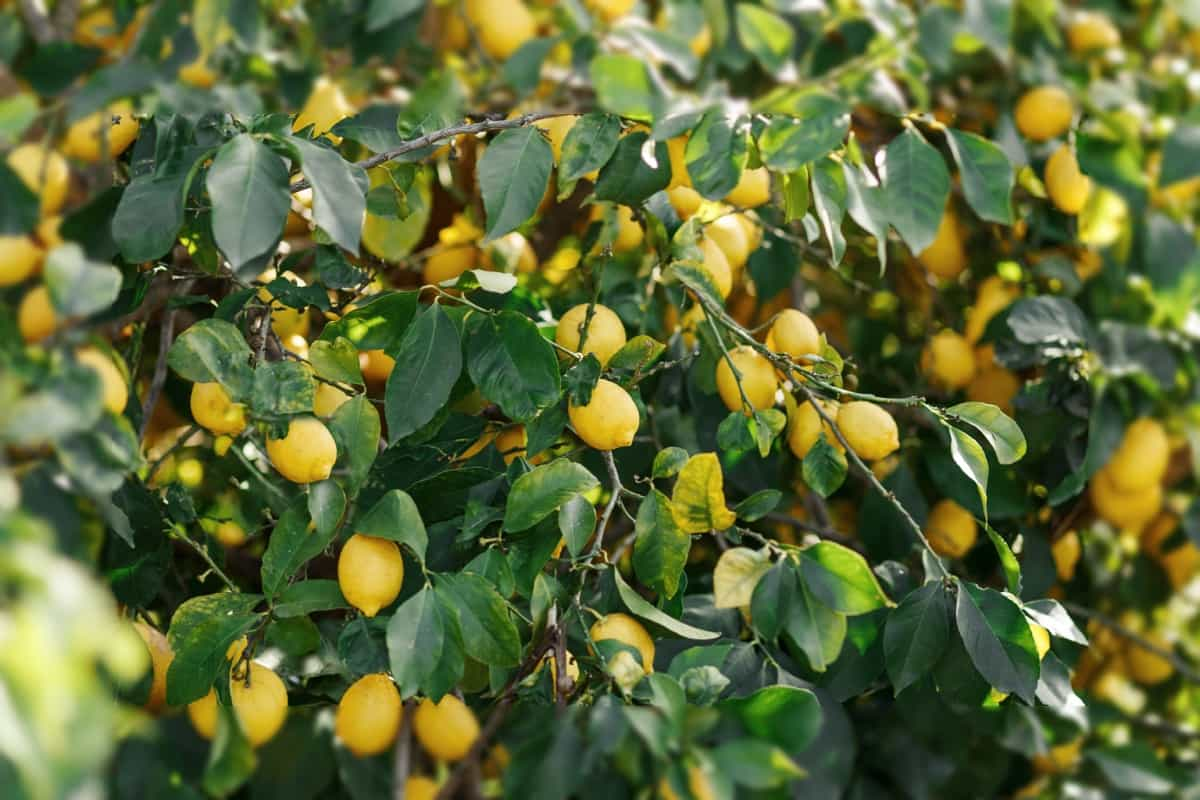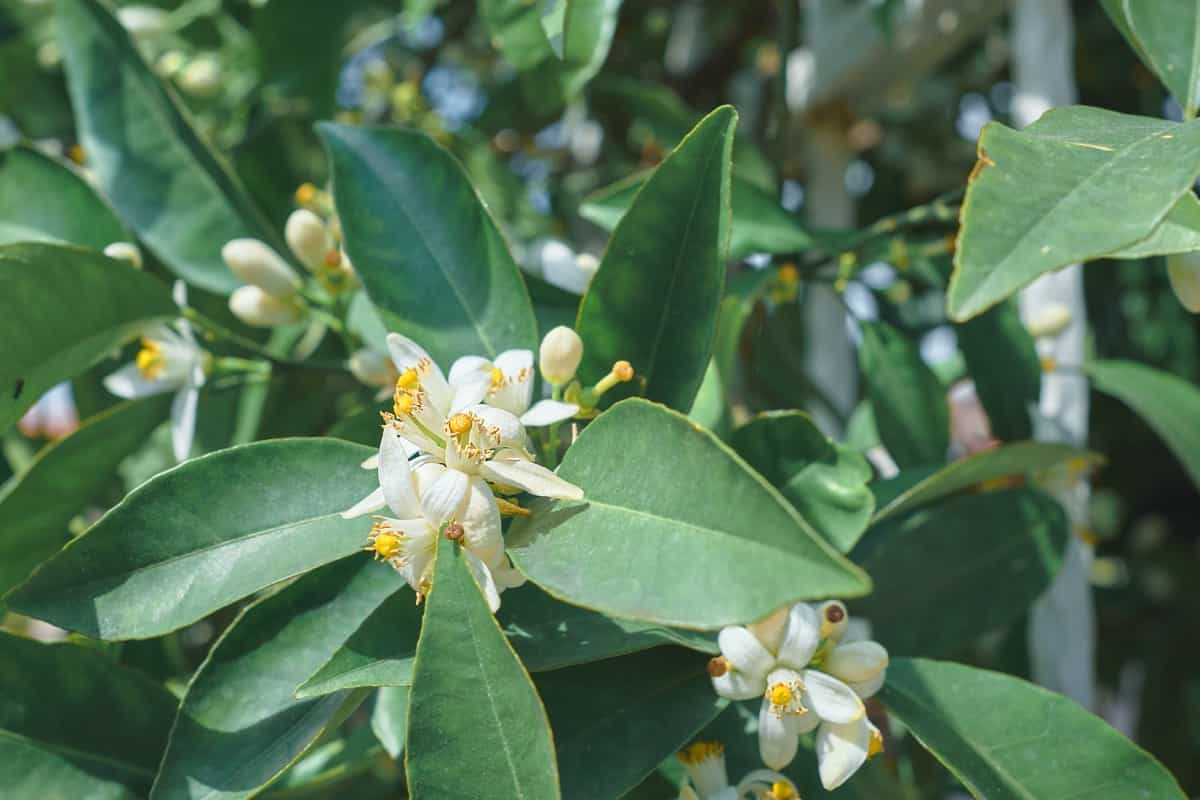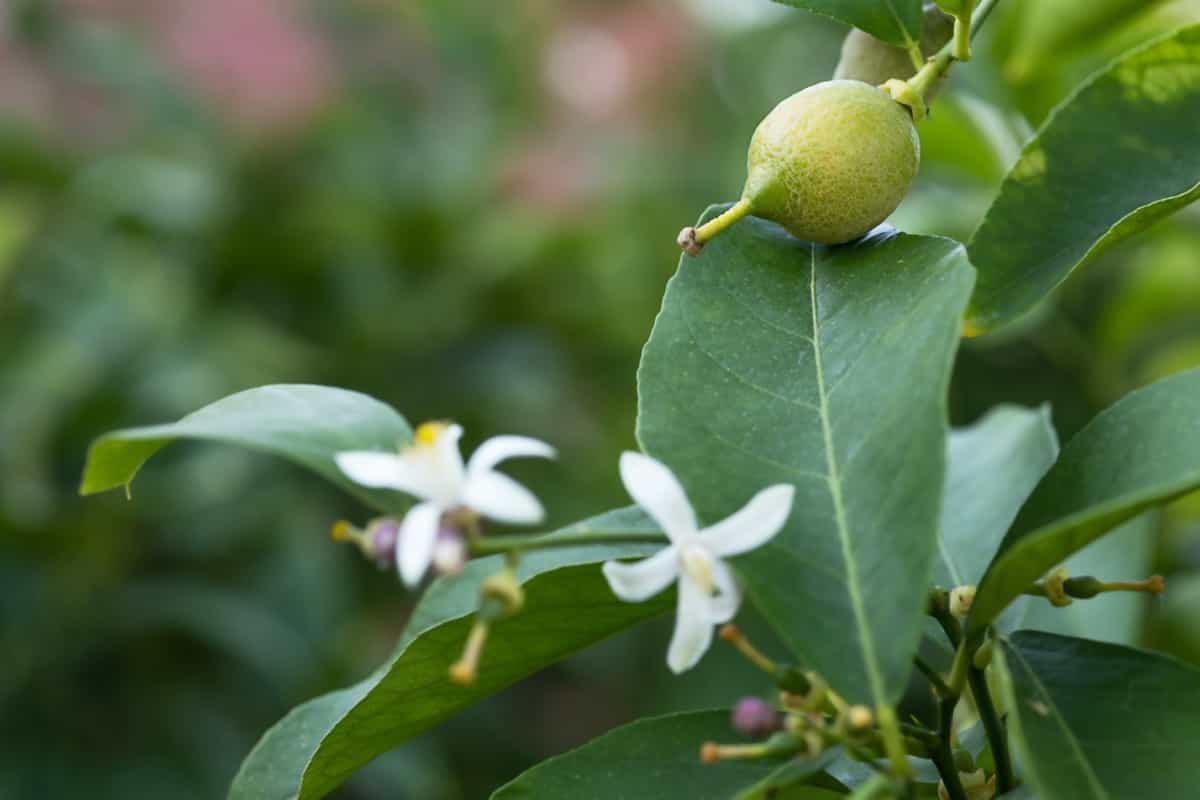The Lemon tree, scientifically known as Citrus × limon, is an evergreen plant belonging to the family Rutaceae. The plants need well-draining soil and regular watering to keep their roots healthy and strong. By applying organic practices to caring for your Lemon tree, you can encourage it to bloom beautifully year after year.

Organic Steps to Induce Lemon Tree Flowers
Selecting Climate-Adapted Varieties
Choose a Lemon variety that thrives in your specific growing zone to ensure optimal growth and bloom. Research different cultivars are known for their adaptability to your region’s climate conditions. Consider factors like temperature tolerance, humidity levels, and overall resilience when making your selection. A well-suited variety will have a better chance of producing abundant blooms, leading to an increased yield of Lemons.
Consult local nurseries or agricultural extension services for recommendations on the best Lemon tree varieties for your area. They can provide valuable insights into which cultivars are most likely to flourish in your specific environment. The popular choice is the Meyer Lemon tree, known for its fragrant blooms and juicy fruit. This variety does well in both warm and cooler climates, making it a versatile option for many growers.
Another excellent pick is the Eureka Lemon tree, which produces abundant fruit year-round and tolerates a range of temperatures. For those in hotter regions, consider planting a Lisbon Lemon tree that thrives in high temperatures and produces tangy fruits perfect for cooking or fresh consumption. Alternatively, if you’re located in a cooler area, the Frostproof Lemon tree might be ideal, as it can withstand colder weather without sacrificing fruit quality.
Ensuring Adequate Sunlight Exposure
Lemon trees thrive in bright, sunny locations, so finding the right spot for your tree is key. Aim for a location with 6 to 8 hours of direct sunlight per day to promote flowering. If you notice your Lemon tree isn’t getting enough sun, consider trimming nearby branches or foliage that may be blocking the light. Alternatively, you can also move potted trees to sunnier spots throughout the day to maximize their sun exposure. Remember that consistent and adequate sunlight not only encourages flower production but also enhances fruit quality.
Optimal Watering for Healthy Roots
Watering your Lemon tree regularly is crucial, especially during the growing season. Make sure to water the Lemon plant deeply and allow the soil to dry out to prevent root rot. Avoid overwatering, as it can lead to suffocating the roots and causing nutrient deficiencies. On the other hand, underwatering can stress the plant and hinder flower production.
Consider using drip irrigation or watering in the early morning to ensure proper hydration without excess moisture lingering on leaves, which can invite pests. Remember that different climates may require adjustments in watering frequency, so pay attention to your tree’s specific needs based on environmental conditions.
In case you missed it: The Ultimate Guide to Growing Kagzi Lemons in Home Gardens

Improving Soil with Organic Matter
Rich, healthy soil is vital for robust root development and overall plant health. Organic matter can significantly enhance soil fertility by providing nutrients and promoting beneficial microbial activity. These natural amendments help create a balanced environment that supports the growth of your Lemon tree. Adding organic matter also improves soil structure, aiding in water retention and drainage, which are key factors for healthy root systems. Furthermore, it helps prevent nutrient leaching, ensuring that your Lemon tree receives the necessary nutrients over time.
Balancing Nutrients with Organic Fertilizers
Organic fertilizers, such as compost, manure, and bone meal, can provide the essential elements needed for healthy growth and blooming. These natural sources are rich in nitrogen, phosphorus, and potassium—the primary nutrients for flowering plants. They release nutrients slowly, promoting steady growth without risking a nutrient burn.
By using organic fertilizers, you nourish your Lemon tree and enrich the soil with beneficial microorganisms that support overall plant health. Avoid synthetic chemical fertilizers, which can harm the environment and disrupt the soil’s natural balance. Opting for organic options ensures a sustainable approach to gardening while effectively feeding your Lemon tree.
Supplementing with Organic Micronutrients
Micronutrients like iron, zinc, copper, and manganese are essential for the lemon tree’s overall health. These micronutrients help in various physiological processes within the plant, promoting strong roots and healthy flowering. Organic sources of micronutrients include kelp meal, bone meal, compost tea, and worm castings. Applying these organic micronutrient sources according to the recommended dosage regularly can help address any deficiencies in the soil and support the Lemon tree’s nutrient needs throughout its growth cycle.
Using Organic Growth Regulators
These natural compounds can help stimulate flowering and fruit production without relying on synthetic chemicals. Organic growth regulators work by mimicking plant hormones, encouraging specific developmental processes like flower formation. By incorporating these regulators into your gardening routine, you can promote a healthier and more robust Lemon tree. When using organic growth regulators, follow the recommended dosage instructions to avoid overapplication. Remember that dosage consistency is key to seeing results with these natural products.
In case you missed it: How to Grow and Care for Organic Lemon Balm: Planting Instructions

Pruning for Better Light and Air Circulation
Pruning your Lemon tree is essential for ensuring better light saturation and air circulation throughout the canopy. By removing dead or overcrowded branches, you allow sunlight to reach all tree parts, promoting healthy growth and flowering. Start by identifying any weak or damaged branches that may be hindering proper airflow within the tree. Trim them back to encourage new growth in healthier directions.
This will also help reduce the risk of pests and diseases finding shelter in dense foliage. When pruning, focus on creating a balanced shape that allows for an even distribution of sunlight and airflow. Aim to maintain an open structure that prevents branches from rubbing each other and causing damage.
Stress Induction with Organic Practices
Stress induction with organic practices may sound counterintuitive, but it can benefit your Lemon tree. By subjecting the tree to controlled stress, such as slight water deprivation or pruning, you stimulate its natural defense mechanisms and encourage flower production. When using organic methods to induce stress, it’s important to strike a balance – you want enough stress to trigger flowering without harming the tree.
Consider adjusting the watering frequency slightly or selectively removing some branches during the dormant season. Organic stress induction is all about gently pushing your Lemon tree out of its comfort zone safely and naturally. Remember that moderation is important when applying these methods – gradual changes are more likely to yield positive results than sudden shocks.
Organic Pest and Disease Management
Maintaining a healthy Lemon tree also involves organic pest and disease management. Instead of applying chemical pesticides that can harm beneficial insects and the environment, opt for natural solutions like neem oil, insecticidal soaps, or homemade remedies using ingredients like garlic and chili peppers.
Regularly inspect your Lemon tree for any pests or diseases such as aphids, spider mites, scale insects, or fungal infections. Early pest detection is key to preventing infestations from spreading and causing damage to your tree. Pruning affected branches and ensuring proper air circulation around the tree can prevent diseases from spreading. Also, maintaining good garden hygiene by removing fallen leaves and fruits can prevent fungal infections from developing.
In case you missed it: How to Grow Lemongrass from Seed: A Detailed Guide for Planting to Harvesting

Conclusion
Lemon trees, like other fruit trees, require proper care and maintenance to thrive and produce an abundance of fruit. If you have a Lemon tree in your backyard, you may be wondering how to encourage it to bloom with even more flowers. Inducing flowers on your Lemon tree can lead to a bountiful harvest of delicious fruits. By following organic methods, you can encourage your Lemon tree to bloom with vibrant and fragrant flowers.
- Flower Garden Designs and Layouts for Beginners
- Planting and Spacing Techniques in Papaya: A Beginner’s Guide
- Growing Gold: Essential Techniques for Planting Pineapples
- How to Make Kalanchoe Plant Bushy: Home Remedies and Solutions
- 11 Reasons Why Your Gardenia is Not Blooming: Home Remedies and Solutions
- Eco Elegance: The Guide to Designing a Drought-Tolerant Landscape
- Gardening on a Slope: Strategies for Hillside Landscaping
- Nourish and Flourish: Top Organic Mulches for Thriving House Plants
- Everything You Want to Know about Indian Mogra Flower: Discover Uses and Growing